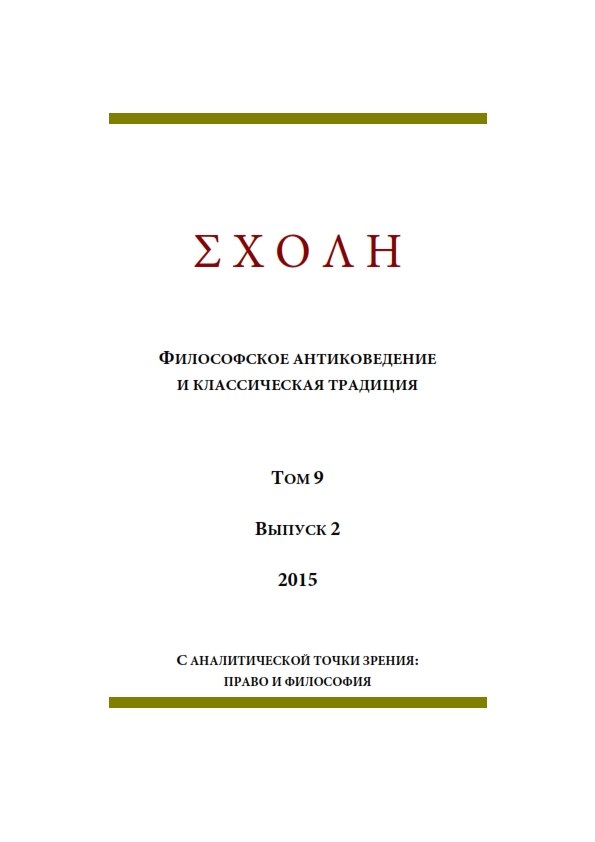ДОСТИЖИМА ЛИ ЦЕЛЬ ФИЛОСОФСКОГО ПОИСКА?
IS THE GOAL OF PHILOSOPHICAL ENQUIRY ACHIEVABLE?
Author(s): Nadezhda VolkovaSubject(s): Ancient Philosphy, Book-Review
Published by: Новосибирский государственный университет
Keywords: philosophy; theory of ideas; the Tübingen School; Plato; Plotinus; Nietzsche;
Summary/Abstract: A Review of Karl Albert, On the Meaning of the Philosophy according to Plato. Trans. from the German into Russian and introduction by M. E. Bulanenko. Vladivostok: Far Eastern Federal University Press, 2012. 120 pp. (Bibliotheca of Philosophy 35). This review focuses on the book by K. Albert On the Meaning of the Philosophy according to Plato (1989). The title of this book reflects its main theme. What is Philosophy according to Plato? What is the object of it? Where does it take its origin and where is the end of philosophical path? This is the range of questions that are answered by the author. The purpose of his study, which was successfully achieved, is to clarify the meaning of Plato’s philosophy. K. Albert argues that according to Plato philosophy is not an infinite and fundamentally unsatisfied desire. At the final stage of philosophical path philosopher find him- or herself in a completely new realm of being, which is described by Plato as a divine and immortal area. The author concludes that the path of philosophy comes from the multiplicity to a certain limit, to the ultimate knowledge of the One. The author refers to the study of K. Gaiser and H. Krämer, to whom he dedicated his book. K. Gaiser and H. Krämer are the founders of the so-called Tübingen school, the main premise of which was a desire to reconstruct Plato’s philosophy as a single metaphysical system. K. Albert refers to that interpretation of the theory of ideas, from which follows that Plato is not talking about two stages of knowledge – things and ideas, but about three stages – things, ideas, and the One. Then the One, according to K. Albert corresponds to three higher ideas – these of Good, Beauty and Being. Interpreting Plato in this way he brings him closer to the Neoplatonists, such as Plotinus.
Journal: ΣΧΟΛΗ. Философское антиковедение и классическая традиция
- Issue Year: IX/2015
- Issue No: 2
- Page Range: 424-434
- Page Count: 11
- Language: Russian

